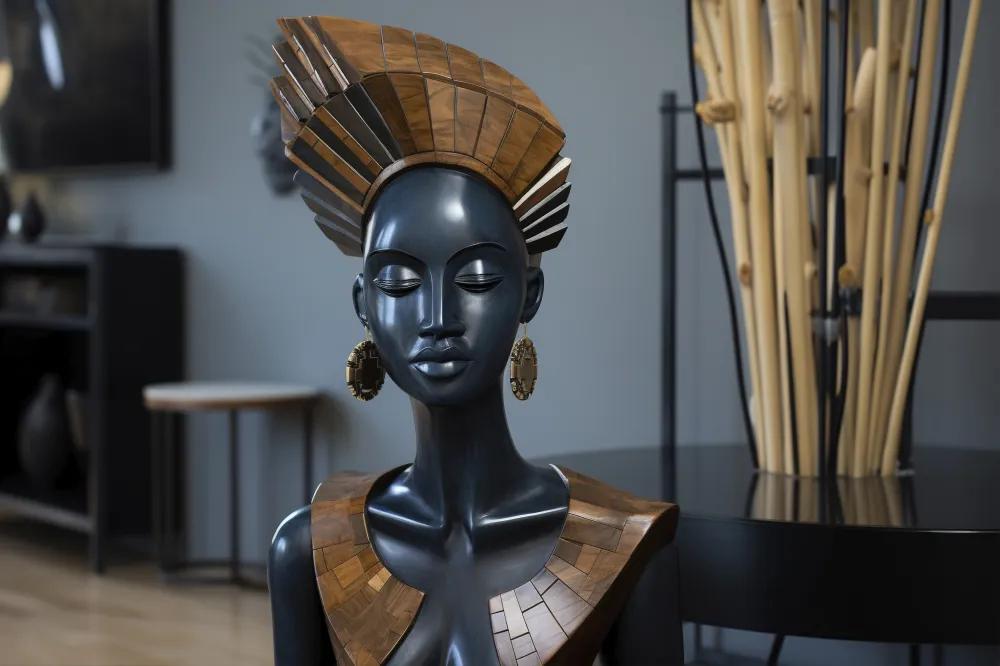BlaXistence

- Start date: October 2022
- End date: August 2024
- Partners: Stichting Bigi Bon, Weekend College ROCvA
- Funder: VSBfonds
blaXistence

The aim of BlaXistence was to introduce vocational students (MBO, the Dutch secondary-level vocational education system) to the multicultural diversity that characterizes many major Dutch cities. BlaXistence brought polyphonic culture directly into the classroom.
Objective
The primary goal was for students to learn to recognize and appreciate each other’s cultures as much as possible. Everything within the walls and curricula of ROC Amsterdam, one of the Netherlands’ largest vocational education institutions, was designed to support this aim.
Several experts have emphasized that a generic “one size fits all” approach in vocational education results in future professionals being insufficiently prepared to work in large urban environments (see e.g., Boggess 2008, 2010; Haberman 1996). The assumptions often expressed as “kids are kids,” “teaching is teaching,” and “learning is learning” fail to address the real challenges faced by teachers and educators in the city and have therefore been rightly criticized (Haberman, 1996).
Research has also shown that the teaching staff in many schools does not reflect the surrounding community, and certainly not the student population. Reports from students of color frequently highlight that they do not feel seen or heard at school, nor do they recognize themselves in the system of which they are a part. Unsurprisingly, this leads to school dropout and generational underachievement. Education must become more inclusive; both students and teachers must be made more aware of the diverse cultures that make the Netherlands their home. The current curriculum for citizenship and cultural diversity is insufficient and does not meet contemporary standards.
The overarching goal of BlaXistence was therefore to bring the reality of multicultural life in Dutch cities into the classroom by exposing MBO students to polyphonic cultural perspectives. We developed curricula to raise broader cultural awareness among students at ROC Amsterdam, helping them to engage with cultures they encounter in multicultural Amsterdam. This was intended to break the pattern of recognizing cultures only on holidays and ceremonial occasions, as though they do not exist outside of those moments. By equipping young people with knowledge of the “other,” BlaXistence aimed to foster greater cohesion, awareness, tolerance, and, ultimately, equal opportunities for all.
Implementation
Due to a change in project management and the delayed release of part of the funding, the project only gained momentum in January 2023. Additionally, one of the funders withdrew, which required innovation on our part. We were subsequently able to collaborate with an organization already working with young people, which gave the project an unexpected and enriching turn: a group of newcomers from Arab countries and Latin America joined the project, adding a new dimension of cross-cultural exchange.
Gaining structural access to the MBO education system also proved challenging. Schools often did not acknowledge, or, in some cases, refused to admit – that they had a problem. At many ROC institutions, approximately 70% of the student body is of migrant background, particularly of African descent, yet management teams and teaching staff do not reflect this reality. An attempt to open a dialogue with a coordinator responsible for transitioning toward a more inclusive school was met with resistance.
The sentiment we encountered was: “We are all the same.” But we are not.
This assumption, however idealistic it may sound, dismisses the heritage and culture of a large part of the student body and affirms the notion that European culture is the standard.
As a result, we were not able to become a structural component of the core curriculum. However, what we did succeed in, was:
- Delivering guest lectures through supportive teachers.
- Offering workshop series and projects in collaboration with the Weekend College and StudieMAX, learning support organizations linked to ROC Amsterdam.
Through these activities, we developed curricula that broadened students’ cultural awareness and familiarized them with diverse cultures within Amsterdam’s multicultural context. By introducing young people to the “other,” we worked to create greater cohesion, awareness, tolerance, and equitable opportunities for all.
Outcomes
The implementation of BlaXistence opened new doors for us. It led to the further development of multiple BlaXistence curricula and other Afrocentric educational initiatives.
The project also laid the foundation for our current Africana course, created to decolonize the curriculum. In partnership with African universities, we plan to expand this course offering further. In addition, we have begun delivering a series of lectures for universities and the Comenius Network (a European education network focused on innovation and teacher development) on the decolonization of education.
Contact Info:
+31 6 27263050
info@broos.institute
Stationsweg 28 1382 AB, Weesp
